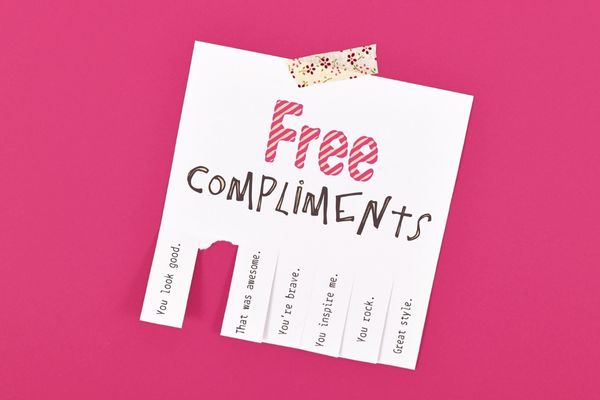Everyone loves a good compliment. But can they contribute to our mental health during recovery? Can they motivate us to stay on track? Can they contribute to better physical health? This article will explore these and other questions and provide guidelines for complimenting someone recovering from addiction.
Why Compliments Are Important
Compliments show that words can be compelling. A well-placed and genuine compliment can make others feel good and make them want to be around you. These are some of the most essential benefits of compliments.
They increase confidence
One of the most immediate benefits of compliments is that they make the receiver feel good. Being told they have admirable qualities is a confidence boost that few other interactions provide.
They build trust between the giver and the receiver
Both giving and receiving compliments are vulnerable acts. The giver opens up their inner thoughts and feelings, and the receiver makes themselves vulnerable by allowing a personal comment.
They make us happy
A study found that when people spend money on others, they find it more gratifying than spending it on themselves. We are conditioned to derive happiness from benefiting others. Both the giver and receiver get a happiness boost from compliments.
They contribute to good mental and physical health
Lonely people are less resilient to stress and more often suffer from inflammatory disorders like obesity, high blood pressure, and others. By making people happier and improving trust, compliments actually make us healthier.
Compliments For Addiction Recovery
There are multiple compliments you can give someone recovering from addiction. Regardless of the specific compliment you give them, the most crucial consideration to make is that the compliments are authentic, genuine, and relevant to their recovery efforts.
Here are some examples:
- I’m proud of the effort you’re putting in
- You’re strong for making an effort to improve and recover
- You’re on the right path
- You’ve made so much progress
- You’re making progress every day
- Recovery is a process, and you’re making it happen every day
- You’re capable of achieving your goal
- You’ve been very strong a resilient
- You can overcome the challenge of recovery
- I trust your recovery decisions
- You’ve been capable of getting out of your comfort zone for recovery
- I’m proud of your commitment to sobriety
- You’ve come so far in your recovery path
- I can only imagine how hard it’s been, but you look so much happier since your recovery started
When you compliment someone recovering from addiction, emphasize their effort to improve their lives and stay sober. Focus on things they can control, like making positive choices for their lives and recovery.
Finally, remember to emphasize the results they’ve already achieved: how long they’ve been sober, the research they’ve made when they’ve had doubts and how it’s helped them, their consistency in attending therapy or taking their medications, and more.
Your words can significantly contribute to their mental and physical well-being. They can play a major role in helping them stay consistent in their recovery process.
How To Give A Good Compliment?
While there’s no specific guide to give a good compliment, there are some guidelines to consider; here are some of them:
- Don’t underestimate their power. We often overestimate how awkward a compliment may come off and underestimate its positive effect on the receiver. If it’s true and comes from a genuine place, rest assured that they will appreciate it.
- Be specific. Pay attention to the efforts your loved one makes for their recovery and compliment them on it. Generic compliments can be great, but it’s so much more meaningful when you can share the intimacy of appreciating each other for being grateful and observant.
- Give them as frequently as your loved one feels comfortable with. This study suggests that some people have trouble receiving compliments because they have self-esteem issues. If the compliment they receive clashes with their ideas about themselves, they may not be flattered. Since mental illnesses can affect self-esteem, be sure to balance genuine compliments with a frequency your loved one appreciates. Giving too many can backfire, but giving too little may not work either. Find the balance.
- Be sincere. This seems obvious, but we’ve mentioned it before. Still, your compliments should be something you feel deeply about and want to convey to your loved ones. If your loved one is making an honest effort to get better, it won’t be hard to find things to compliment them.
Mental Health Is Just As Important As Physical Health During Recovery
It’s easy to confuse addiction as a purely physical illness. In reality, it’s caused by a very complex combination of genetic and environmental factors. Contributing to your recovering loved one’s mental health is very kind and may encourage them to stay on their path.
Complimenting them sincerely and thoughtfully can be a great way to boost their mental health. Still, you must find a balance in the frequency: too many can be overwhelming, and too few can make them feel underappreciated.
Ultimately, you know them best and are in the best position to know what to say and when. Above all, be observant, patient, and compassionate.
